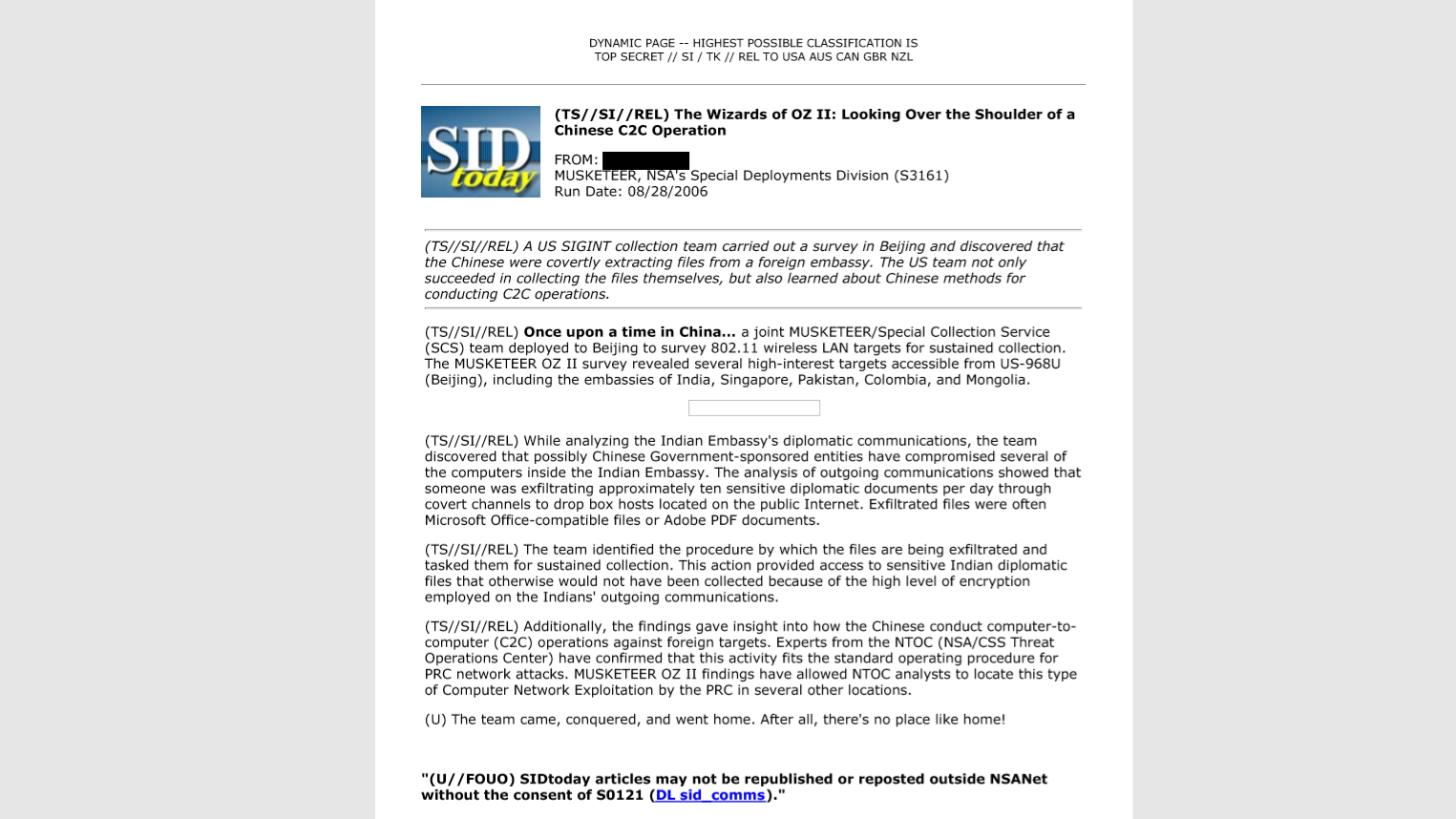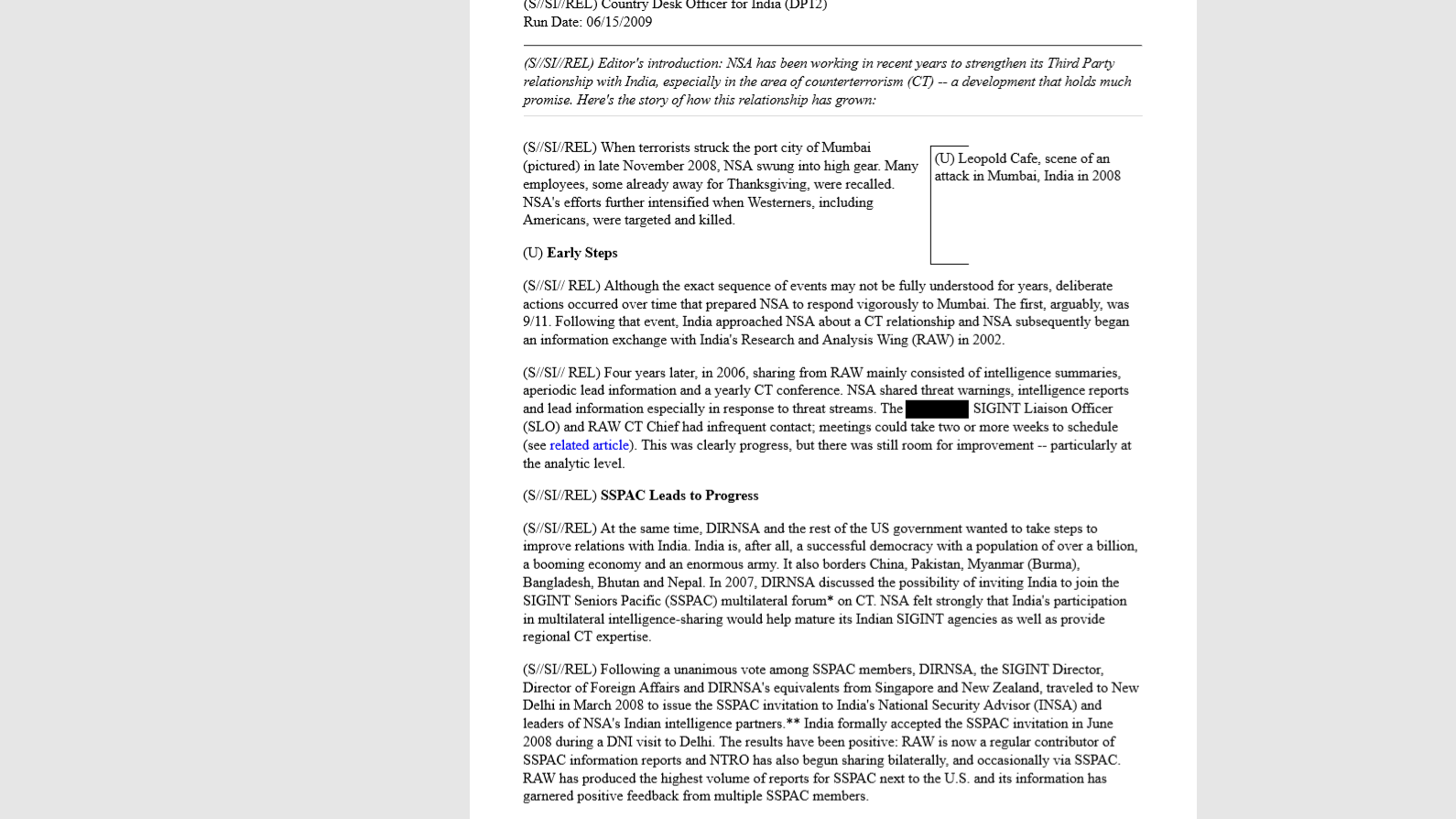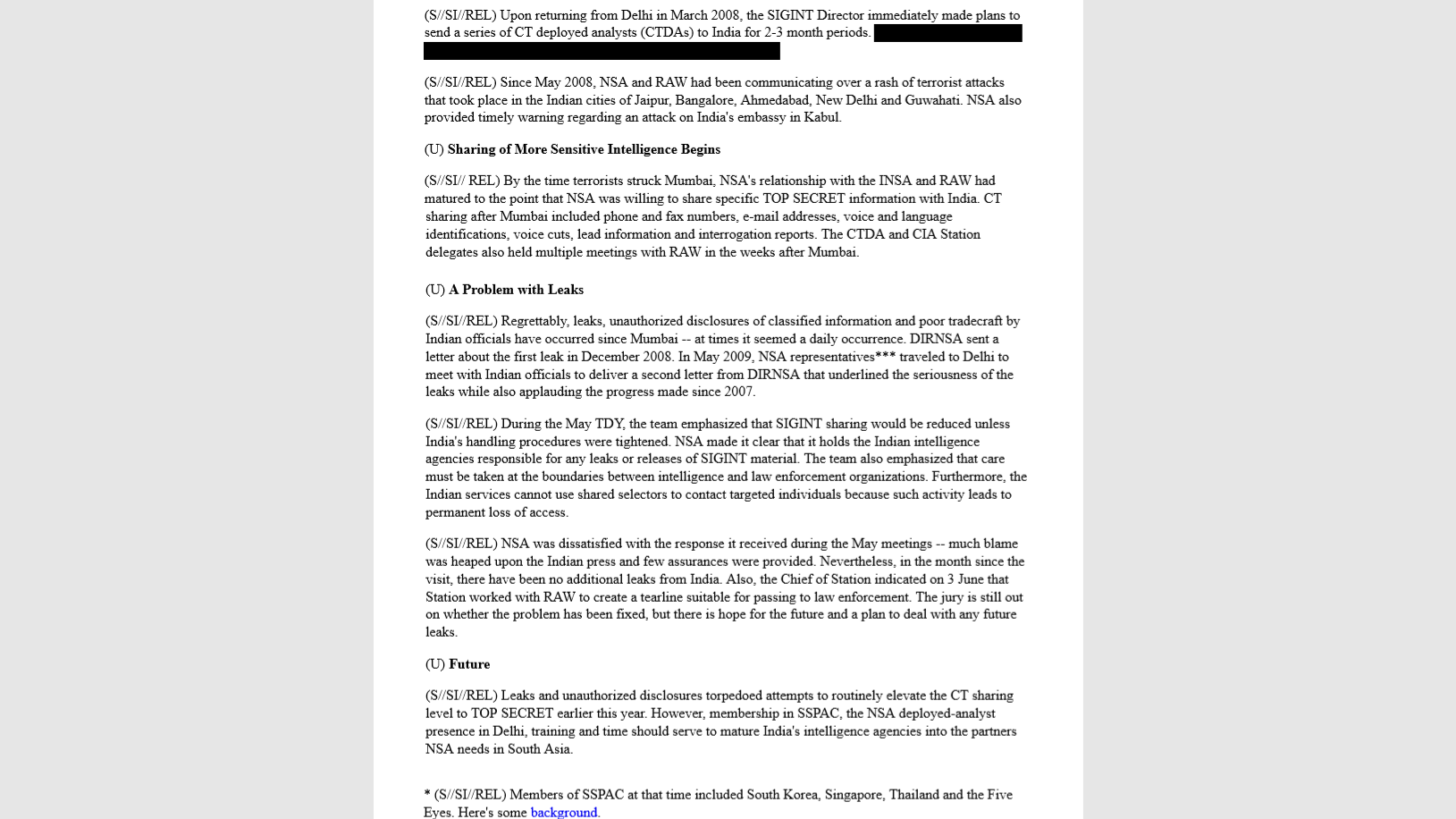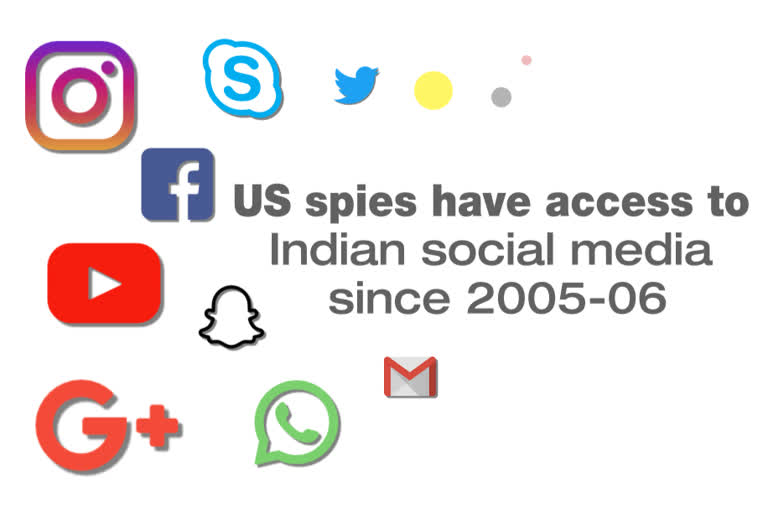New Delhi: Amid a blazing controversy over violation of privacy laws due to snooping in India through Pegasus, an Israeli-origin malware planted on mobile phones, what has been unsaid thus far is that not just the Indian government but even the United States National Security Agency (NSA) could access any social media account like Facebook, Gmail and Skype accounts of whoever they wanted to in India since 2005-06.

It was enabled by several NSA global surveillance programmes called PRISM, XKEYSCORE and BOUNDLESS INFORMANT by data-hunting in 11 of the biggest IT companies of the world like Apple, Google, and Microsoft.
For example, the NSA could, through PRISM, access email, login notifications, video and voice chat, social networking details, videos, photos, voice-over IP conversations and even conduct file transfers.

While the Indian agencies knew about the US snooping, they could not take any steps as all these companies were American ones, nor was there an Indian alternative to the extensively used Gmail mailing application.
According to whistleblower Edward Snowden, India was the fifth most targeted country by the US.
Read: Sensex continues to scale new peaks, Nifty tests 12,000
To illustrate the extensive scope of snooping, in 2006, a spy team of the NSA while snooping through the diplomatic communications of the Indian embassy in Beijing discovered that the Chinese spies were doing the same—at a prolific rate of extracting approximately ten sensitive Indian diplomatic documents a day through covert channels to dropbox hosts located on the public Internet through Microsoft Office-compatible files or Adobe PDF documents.

Said an NSA internal communication mail “This action provided access to sensitive Indian diplomatic files that otherwise would not have been collected because of the high level of encryption employed on the Indians' outgoing communications. Additionally, the findings gave insight into how the Chinese conduct computer-to-computer (C2C) operations against foreign targets.”
Even while the Indo-US bilateral relationship improved substantially after the 9/11 attacks in 2001, the snooping continued. Terror attacks in India and a US NSA keenness to improve ties with Indian spy agencies took the relationship to a new level.
In 2008, India accepted the invitation to be part of a secret multilateral spy network called the SIGINT Seniors Pacific (SSPAC) which comprises South Korea, Singapore, Thailand and the ‘Five Eyes’.
Set up in 1941, ‘Five Eyes’ is an exclusive club of spy rings of five countries—Australia, Canada, the United Kingdom and the US—that collaborate to intercept information within other countries to be used for diplomatic, security, military and economic benefits and gains.
In India, the agencies involved with the SSPAC are Research and Analysis Wing (RAW), National Technical Reconnaissance Organisation (NTRO) and the Aviation Research Centre (ARC).
Since 2008, “RAW has produced the highest volume of reports for SSPAC next to the US and its information has garnered positive feedback from multiple SSPAC members,” an NSA document
Also, read: IIT Madras launches 'first indigenously' designed standing wheelchair




